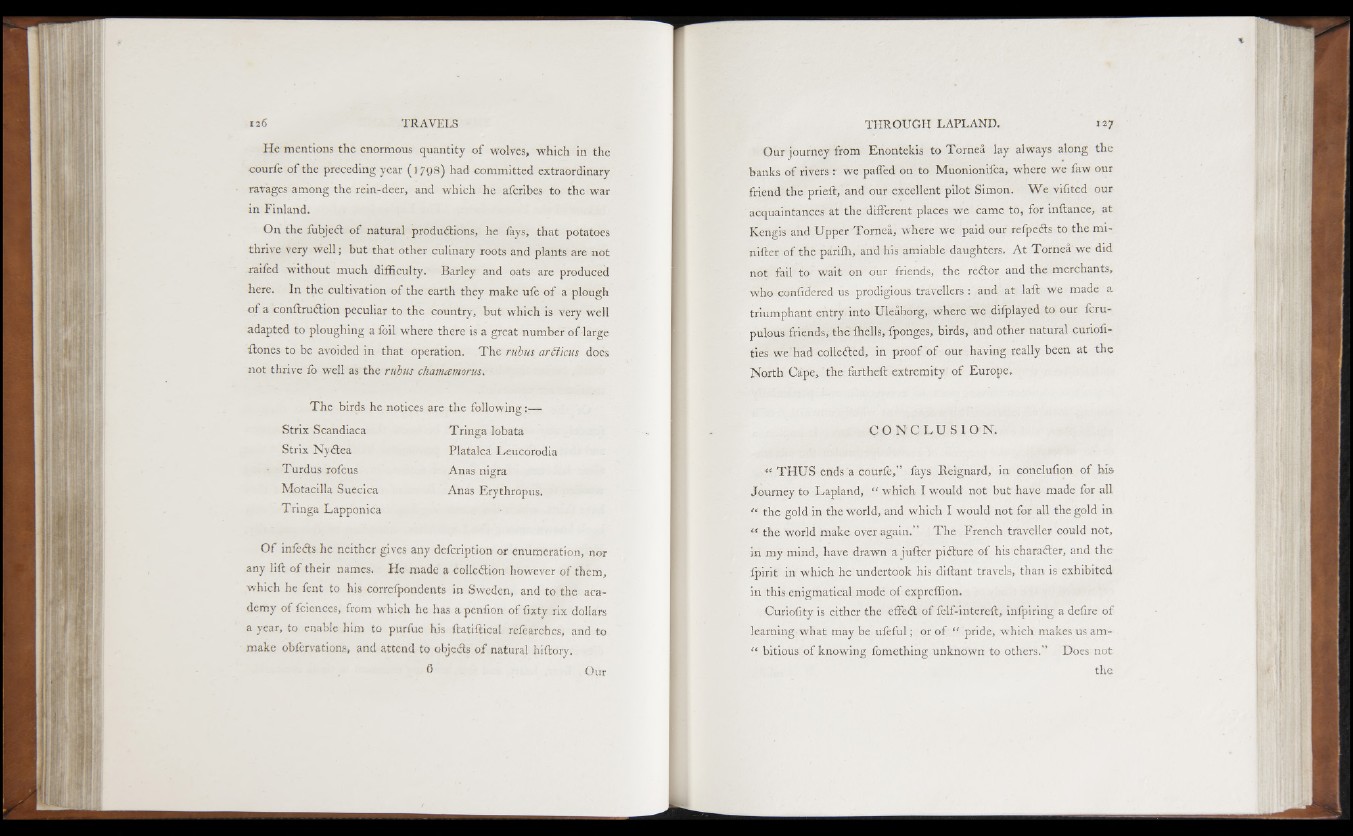
He mentions the enormous quantity of wolves, which in the
courfe of the preceding year (l 7Q8) had committed extraordinary
ravages among the rein-deer, and which he afcribes to the war
in Finland.
On the fubjed o f natural produdions, he fays, that potatoes
thrive very well; but that other culinary roots and plants are not
raifed without much difficulty. Barley and oats are produced
here. In the cultivation of the earth they make ufe o f a plough
o f a conitru¿lion peculiar to the country, but which is very well
adapted to ploughing a foil where there is a great number of large
ftones to be avoided in that operation. The rubus arSiicus does
not thrive lo well as the rubus chamtemorus.
The birds he notices are the following :—
Strix Scandiaca
Strix Nydea
Turdus rofeus
Motacilla Suecica
Tringa Lapponica
Tringa lobata
Platalea Leucorodia
Anas nigra
Anas Erythropus.
Of infeds he neither gives any defcription or enumeration, nor
any lift of their names. He made a colledion however of them,
which he fent to his correfpondents in Sweden, and to the academy
of fciences, from which he has a penfion of fixty rix dollars
a year, to enable him to purfue his ftatiftical refearches, and to
make obfervations, and attend to objects of natural hiftory.
0 Our
Our journey from Enontekis to Tornea lay always along the
banks of rivers r we paffed on to Muonionifca, where we faw our
friend the prieft, and our excellent pilot Simon. W e vifited our
acquaintances at the different places we came to, for inftance, at
Kengis and Upper Tornea, where we paid our refpeds to the minifter
of the pariih, and his amiable daughters. At Tornea we did
not fail to wait on our friends, the redor and the merchants,
who confidered us prodigious travellers : and at laft we made a
triumphant entry into Uleáborg, where we difplayed to our fcru-
pulous friends, the Ihells, fponges, birds, and other natural curiofi-
ties we had colleded, in proof of our having really been at the
North Cape, the fartheft extremity of Europe.
C O N C L U S I O N .
“ THUS ends a courfe,” lays Iteignard, in conclufion o f his
Journey to Lapland, “ which I would not but have made for all
“ the gold in the world, and which I would not for all the gold in
“ the world make over again.” The French traveller could not,
in my mind, have drawn a jufter pidure of his charader, and th e
lpirit in which he undertook his diftant travels, than is exhibited
in this enigmatical mode of expreffion.
Curioftty is either the effed of felf-intereft, infpiring a defire of
learning-what may be ufeful; or of “ pride, which makes us am-
“ bitious of knowing lomething unknown to others.” Does not
th e